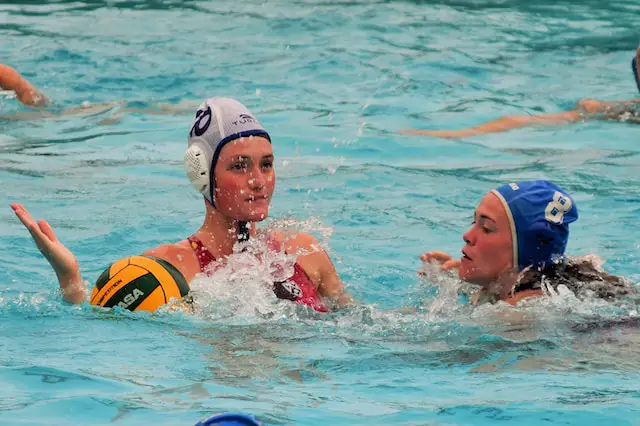Water polo is an intense and physically demanding sport that requires a unique set of skills and abilities from its players. While the game is known for its fast-paced action and strategic planning, it’s also known for its rules and regulations. One of the most important rules in water polo is the distinction between minor and major fouls.
Major fouls are serious infractions that can result in exclusion from the game and can have a significant impact on the outcome of the match. In this article, we’ll take a closer look at what constitutes a major foul in water polo. We’ll explore the different types of major fouls, the consequences of committing a major foul, and how players can avoid committing them.
Whether you’re a beginner or an experienced player, understanding the major foul rules is essential for playing water polo at a competitive level. So, if you’re curious about what constitutes a major foul in water polo and want to learn more about this topic, then keep reading!
What Are Major Fouls in Water Polo
Definition of Major Fouls
In water polo, major fouls are serious breaches of play that result in the exclusion of the fouler for 20 seconds and a free throw to the opponents.
Major fouls are also known as exclusion fouls. These fouls are different from minor fouls, which are less serious and do not result in an exclusion.
Types of Major Fouls
There are several types of major fouls in water polo, including:
- Holding or sinking an opponent who is not holding the ball
- Impeding or preventing the free movement of an opponent who is not holding the ball
- Using two hands to hold, push, or hit an opponent
- Violent behavior, including hitting, kicking, or striking an opponent
- Interfering with a free throw or corner throw
- Using abusive language or gestures towards an opponent or official
Penalties for Major Fouls
When a major foul is committed, the player who committed the foul is excluded from play for 20 seconds and must leave the field of play.
During this time, the team of the fouled player has a man-up advantage and can attempt to score a goal. If the fouled team scores a goal during the man-up advantage, the excluded player can re-enter the game.
If the fouling team scores a goal during the exclusion, the excluded player must remain out of the game until the next stoppage of play. In addition to the exclusion, a penalty shot may be awarded if the foul prevented a probable goal. The penalty shot is taken from the 5-meter line and only the goalkeeper is allowed to defend the goal.
If the penalty shot results in a goal, the excluded player can re-enter the game. If the penalty shot is missed or saved, the excluded player must remain out of the game until the next stoppage of play.
Preventing Major Fouls
Training and Education
Preventing major fouls in water polo starts with proper training and education. Players must be taught the rules of the game and the consequences of committing major fouls.
Coaches should emphasize the importance of fair play and sportsmanship while also teaching players how to defend without committing fouls. It is also important for players to learn proper technique for playing the game to avoid accidental fouls.
Proper Equipment
Having proper equipment is also important for preventing major fouls in water polo. Players should wear appropriate swimwear and protective gear, such as a mouthguard and ear guards.
This not only protects players from injury but also helps prevent accidental fouls. Goalkeepers should also have proper equipment, such as a helmet and chest protector, to protect them from shots on goal.
Fair Play and Sportsmanship
Fair play and sportsmanship are essential for preventing major fouls in water polo. Players should respect their opponents and the rules of the game. They should avoid intentionally committing fouls and should play with integrity.
Coaches should also emphasize the importance of fair play and sportsmanship and hold their players accountable for their actions.
Overall, preventing major fouls in water polo requires a combination of proper training and education, proper equipment, and fair play and sportsmanship. By following these guidelines, players can avoid committing major fouls and play the game in a safe and enjoyable manner.
Conclusion
Water polo is a physically demanding sport that requires a high level of skill and strategy. Major fouls are an important aspect of the game that players and coaches must understand to succeed. These fouls are more severe than ordinary fouls and can result in exclusion from the game or a penalty throw for the opposing team.
Players must be careful to avoid committing major fouls, as they can have a significant impact on the outcome of the game. Coaches should also ensure that their players are well-trained and understand the rules of the game to avoid costly mistakes.
Overall, major fouls in water polo are designed to promote fair play and ensure that the game is played safely and within the rules. By understanding and respecting these rules, players can enjoy the game while also competing at the highest level.







